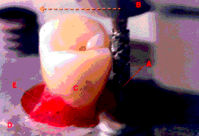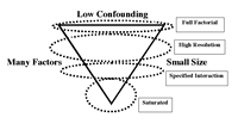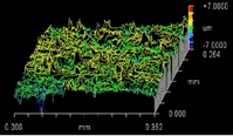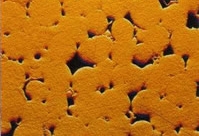
Paul D. Funkenbusch
Associate Dean, Education and New Initiatives
Professor, Department of Mechanical Engineering
Professor, Materials Science
PhD, Michigan Technological University, 1984
- Office Location
- 222 Hopeman Hall
Research Overview
My primary research interest has always been in the relationships among the microstructure, properties, and processing of materials. Quantification of microstructure (through techniques such as electron, atomic force, and optical microscopy) is the essential link in understanding how materials behave. Study of microstructure-property relationships tells us how materials "work" and how they can be improved. Processing studies allow this information to be put to practical use in fabricating materials with improved microstructures and, therefore, properties. In recent years this work has expanded to include studies involving biological materials and mechanics, especially the important role played by variability in these systems. Dealing with variability, in traditional engineering materials as well as biological applications, has also led me to a strong interest in experimental and robust design methods.
| Biomaterials and Processes | DOE (Design of Experiments) Methods | |
“Key variables affecting the performance of rotary cutting instruments”, Paul D. Funkenbusch, Mario Rotella, and Carlo Ercoli, Journal of Prosthetic Dentistry, 113 (2015), 336-342 “Integrity of implant surface modifications”, D. Mints, C. Elias, P. Funkenbusch, & L. Meirelles, International Journal Oral MaxilloFacial Implants, 29 (2014), 97-104 “Cutting performance of single-use and multi-use diamond cutting rotary instruments, with turbine and electric handpieces”, Mario Rotella, Carlo Ercoli, Paul D. Funkenbusch, Scott Russell, and Changyong Feng, Journal of Prosthetic Dentistry, 111 (2014), 56-63 |
Experimental Design Methods short course, University of Ghana, January 2016 Introduction to Robust Design and Quality Engineering, ME 222/424, TME 424, MSC 424 Design of experiments teaching module (3-classes, biomechanics emphasis), 2015) | |
| Engineering Materials and Processes | Oldies but Goodies | |
“Advances in Machining Technology for Sapphire Wafers”, Li, Z.C., Pei, Z.J., and Funkenbusch Paul D., invited chapter in Sapphire: Structure, Technology and Applications, Nova Science Publishers, Inc., Hauppauge, NY, 2013, pages 1 – 33 “Erosion and surface structure development of metal-diamond particulate composites”, Brian E. MacMillin, Christopher D. Roll, and Paul Funkenbusch, Wear, 269 (2010), 875-883 “The microstructure and mechanical properties of commercial, bronze-bond, diamond-abrasive tool materials”, Yuansun Wu and Paul D. Funkenbusch, Journal of Materials Science, 45 (2010), 251-258 |
On the Strength of Heavily Cold Worked in Situ Composites", P.D. Funkenbusch and T.H. Courtney, Acta Metallurgica, 33 (1985), 913-922 "Solidification of YBa2Cu3O7-d from the Melt", A. Goyal, K.B. Alexander, D.M. Kroeger, P.D. Funkenbusch, and S.J. Burns, Physica C, 210 (1993), 1997-212 "Hot Isostatic Pressing (HIP) of Powder Mixtures and Composites: Packing, Densification, and Microstructural Effects", E.K.H. Li and P.D. Funkenbusch, Metallurgical TransactionsA, 24A (1993), 1345 -1354. “Micromechanics of diamond composite tools during grinding of glass", Toshio Takahashi and Paul D. Funkenbusch, Mater. Sci. and Eng. A, 285 (2000), 69-79 |
Research Interests
- Microstructure, properties, and processing of materials
- Variability in materials and processing especially as related to biomaterials and mechanics
- Experimental design/robust design




